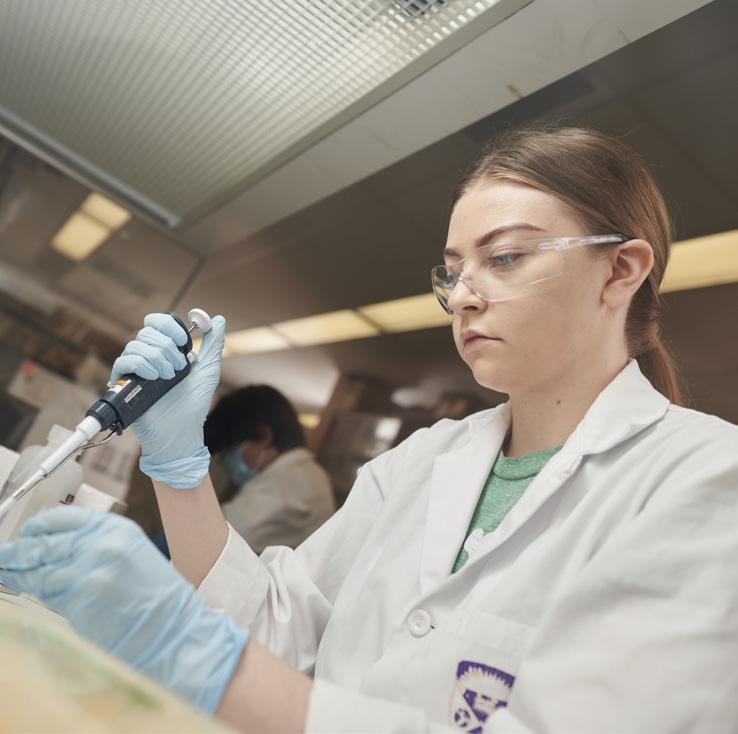
2 minute read
research
The most profound challenges of our time cross disciplinary boundaries. Our Faculty will adopt the interdisciplinary and collaborative research approach, grounded in the disciplinary excellence required to make a significant impact on these crucial tasks.
We will continue to work with private, government, and NGO partners in areas including climate change ecosystem impacts, mineral exploration, corrosion, nuclear and materials science, actuarial and financial risk, and 5G networks, while investigating new partnerships in areas including nuclear technology, data security, sustainable agriculture and the applications of AI to health research. We embrace the opportunity to partner with outside entities beyond NSERC Discovery Grants to expand our impact and to resource our research. We will support the formation and development of these partnerships with appropriate professional staff support at every stage.
With partners in the Schulich School of Medicine & Dentistry and the Faculties of Engineering and Health Sciences, we will reinforce and build Western’s strength in medical and health-oriented scientific research, embracing the opportunities afforded by the new Bioconvergence building project.
To meet our interdisciplinary goals, we will continue to partner with researchers and scholars across campus, including our participation with all of the Western Research Institutes. We will design and implement administrative structures and processes to encourage and facilitate boundary- and faculty- crossing research while working to remove career barriers to interdisciplinary scientists. Knowledge mobilization will forward looking, beyond scientific publications, where we will look for opportunities to drive changes and adopt new public policies and look to utilizing IP generated within the Faculty for licenses and spin-off opportunities.
Our constrained financial environment requires us to evaluate how best to deliver technical research support to avoid duplication of effort and exploit synergies. Where warranted, we will maintain and build our world-class facilities using a shared “core facilities” model in which top equipment is run by elite technical staff. These core facilities will cross departmental boundaries and will involve partnerships with other Western faculties and outside entities. The resulting transition from a sole proprietor to a shared service model will allow us to expand opportunities to researchers at all career stages.
We will promote and encourage open-access publication and the use of consistent identifiers for our publications to increase impact and improve the overall recognition received by our University. Open access facilitates wide dissemination, supporting our focus on equity, visibility and engagement with the world. We will increase our knowledge of open data management practices by making workshops and resources available to our community. We will encourage Faculty to bring all their identifiers under one umbrella and to use ORCID to help connect their work to our University in a consistent way.
COMMITMENTS, MILESTONES AND METRICS
» Track all Tri-Council awards, and periodically benchmark against U15 by department
» Track the number of applications, percent successful, and total dollar value of successful team grants led by Western Science faculty and benchmark against U15
» Track participation of Western Science faculty on team grants led by other faculties and other universities
» Track the number of patents created from and with Western Science Faculty research
» Track the number of spin-out companies created by Western Science Faculty
» Survey faculty and staff periodically to assess the research environment
» Track faculty use of ORCID identifiers with a goal of 100% participation
» Track faculty bibliometric data: number of papers, number of citations, and co-publication networks








